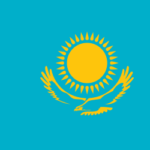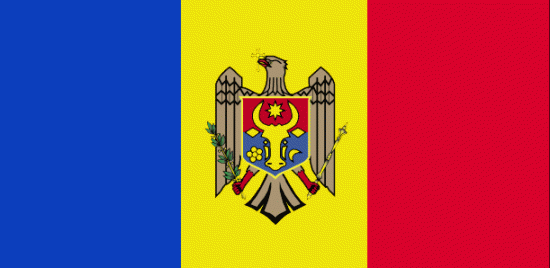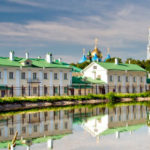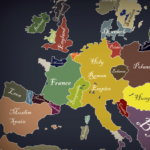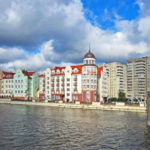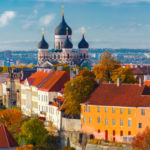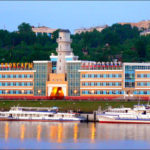16 interesting historical facts about Russia
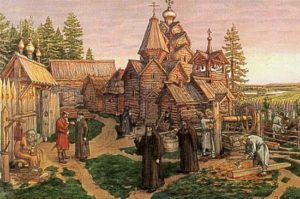 In the history of Russia there were many pages, bright and not very, but our country passed with honor through all the trials that fell to its lot. Numerous historical facts are a vivid confirmation of this, and at the same time, not all of them are mentioned in textbooks. We have compiled for you a selection of the most curious and amazing of them.
In the history of Russia there were many pages, bright and not very, but our country passed with honor through all the trials that fell to its lot. Numerous historical facts are a vivid confirmation of this, and at the same time, not all of them are mentioned in textbooks. We have compiled for you a selection of the most curious and amazing of them.
Anthropological and genetic studies have shown that people who lived on the East European Plain, located in our country, were probably the ancestors of not only Russians, but also most Europeans.
The origin of the name of our country is unknown, since ancient times our country was called “Rus”, but no one knows where this name came from. But it’s known how “Rus” turned into “Russia” – this happened thanks to the Byzantines who pronounced the word “Rus” in their own way.
People of the Homo Sapiens species lived on the territory of Russia more than 50 thousand years ago, when most of Europe was still covered with ice. These historical facts have long been confirmed by archaeologists.
Grasshoppers were called dragonflies in Russia. Nobody confused these jumpers with flying insects, they just chirp very loudly.
For three centuries, Russia ranked first in sobriety among all of Europe. Between the XVII and the beginning of the XX century, hop drinks contained no more than 6% alcohol. And even so, the wine was diluted with water, like the ancient Greeks.
Have you ever thought about who first introduced the concept of “cottage”? In most foreign languages, this object is called exactly that, “dacha”. The first dachas received subjects of Peter the Great as a reward for their merits. The suburban area allowed us to experiment with architecture, without shyness and without fear of spoiling the appearance of the city.
In 1924, Beluga fish was caught in the Tikhaya Sosna River, weighing 1227 kg, and 245 kg of black caviar were in its belly. This case is listed in the Guinness Book of Records, as a fact of extraction of the most expensive fish in the world. In our time, the cost of this caviar would be about 300 thousand dollars.
Cities in Russia appeared more than 4 thousand years ago. When it comes to ancient states, everyone immediately recalls Rome, Greece and interfluve. However, a number of historical facts indicate that the vast “country of cities” existed in the Urals as far back as 4000 years ago.
The falcon in Russia was the most expensive gift. To receive this bird as a gift was considered a sign of high honor and recognition. In the days of the Golden Horde, falcons paid as tribute to the Tatars, and the value of a bird was equated to three thoroughbred horses.
Kutuzov is often depicted with a blindfold on his right eye, but this does not correspond to historical accuracy, since Kutuzov never wore blindfolds on his eye. Yes, Kutuzov’s right eye was damaged, but he saw it, and there was no sense in hiding it.
The recorded history of Russia begins in 862. It was then, according to historical facts, Rurik became the ruler of Russia. This legendary Varangian was the founder of the first princely, and later tsarist dynasty of Russia.
Until 1917, at the end of each word ending in a consonant, the sign “b” was printed. This letter was called “yat”, and it did not have its own sound, without affecting the meaning or spelling of the text. However, when printing books, “b” occupied up to 8% of the space on the sheet! The seal of this meaningless letter cost the Russian treasury large amounts annually, about 400 thousand rubles a year. And this is a whole bunch of money by the standards of those years.
Until the 17th century, there was no single flag in Russia. Clarity was brought by Peter the Great, thanks to him the flag has the same appearance as now.
Many tried to conquer Russia, and these attempts repeatedly failed. They were able to conquer Russia only once, and this happened in the 13th century. The reason for this was that Russia at that time was divided into many principalities, and the Russian princes could not unite to jointly repulse the Golden Horde.
Before the revolution, it was possible to buy weapons, cold or firearms, without any problems. No licenses and certificates were required, just take the money and come to the arms shop.
Corporal punishment in Russia was finally abolished in 1904. This historical fact has become another evidence of the rapid development of culture.


